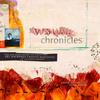A writer-friend of mine was lamenting the fact that, in this
ever-more-competitive publishing world, tie-ins are crowding out
paperback original fiction off the shelves (particularly sf/fantasy novels) in three
ways:
1)publishers are buying less material that doesn’t have a
"pre-sold" audience
2)books that ARE published are being pushed off the
shelf very quickly to make room for new tie-in work that comes out in regular
cycles.
3)backlists of original fiction are crowded out by the back-list of
tie-in work, which are re-issue and re-stocked every time a new tie-in in a series comes out, which can be often as monthly. She cited the hundreds of STAR TREK titles and twenty-five MURDER SHE WROTE
books as examples.
It’s probably true that, in today’s tough market, a publisher is more likely to take a risk on a tie-in — which comes with a pre-sold audience and a ready market — than with an original novel by an unknown author. But I don’t know that its any different than movie makers being more likely to greenlight a sequel to a hit than an original film…or for a network to prefer CSI:SEATTLE to just another cop show. Sure, corporations are risk-adverse and prefer going with proven commodities… but original movies are still getting made, original shows are still getting produced, and original novels are still being published.
That said, I stopped by a Barnes & Noble today and couldn’t help noticing that 75% of the paperbacks on the "New Science Fiction" table were STAR TREK, STAR WARS or other tie-in/licensed books. The LA Times reports today that Pocket Books now puts out 20 books a year in their various STAR TREK lines…and plans to do so through at least 2007.
Since Pocket Books began issuing "Trek" novels in the late ’70s, for example
(Bantam and Ballantine published a handful of originals and adaptations earlier
in the decade), more than 500 "Star Trek" titles have hit the nation’s
bookshelves, selling tens of millions of copies.
Your thoughts?








